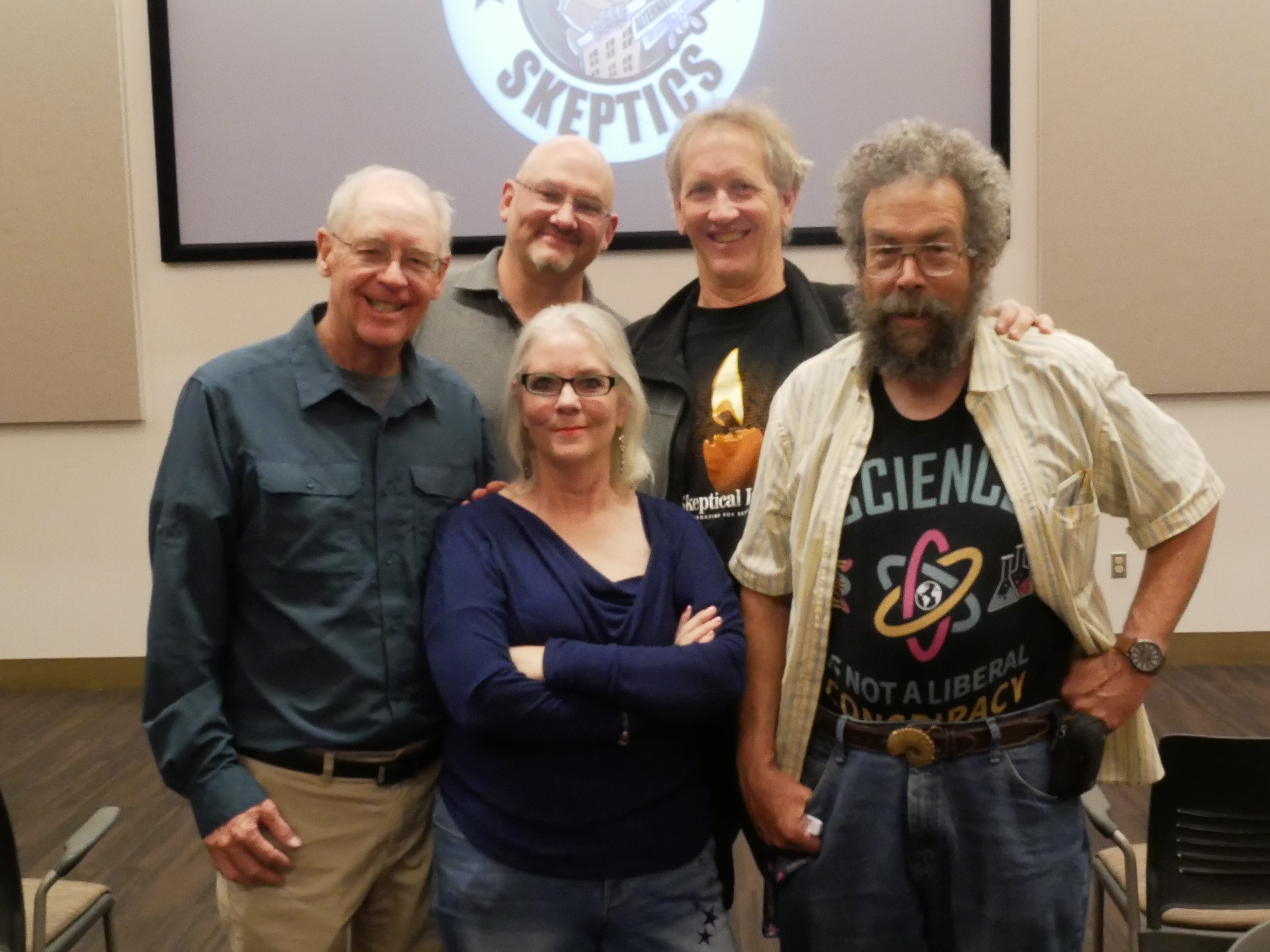
Scientific skepticism
Scientific skepticism or rational skepticism (also spelled scepticism), sometimes referred to as skeptical inquiry,[1] is a position in which one questions the veracity of claims lacking empirical evidence. In practice, the term most commonly refers to the examination of claims and theories that appear to be beyond mainstream science, rather than the routine discussions and challenges among scientists. Scientific skepticism differs from philosophical skepticism, which questions humans' ability to claim any knowledge about the nature of the world and how they perceive it, and the similar but distinct methodological skepticism, which is a systematic process of being skeptical about (or doubting) the truth of one's beliefs.[2]
For a general discussion of skepticism, see skepticism.
The skeptical movement (British spelling: sceptical movement) is a contemporary social movement based on the idea of scientific skepticism. The movement has the goal of investigating claims made on fringe topics and determining whether they are supported by empirical research and are reproducible, as part of a methodological norm pursuing "the extension of certified knowledge".[3]
Roots of the movement date at least from the 19th century, when people started publicly raising questions regarding the unquestioned acceptance of claims about spiritism, of various widely held superstitions, and of pseudoscience.[4][5]
Publications such as those of the Dutch Vereniging tegen de Kwakzalverij (1881) also targeted medical quackery. Using as a template the Belgian organization founded in 1949, Comité Para, Americans Paul Kurtz and Marcello Truzzi founded the Committee for the Scientific Investigation of Claims of the Paranormal (CSICOP), in Amherst, New York, in 1976. Now known as the Committee for Skeptical Inquiry (CSI), this organization has inspired others to form similar groups worldwide.[6]
History[edit]
Historical roots[edit]
According to skeptic author Daniel Loxton, "skepticism is a story without a beginning or an end." His 2013 article in Skeptic magazine "Why Is There a Skeptical Movement" claims a history of two millennia of paranormal skepticism.[62] He is of the opinion that the practice, problems, and central concepts extend all the way to antiquity and refers to a debunking tale as told in some versions of the Old Testament, where the Prophet Daniel exposes a tale of a "living" statue as a scam.[63] According to Loxton, throughout history, there are further examples of individuals practicing critical inquiry and writing books or performing publicly against particular frauds and popular superstitions, including people like Lucian of Samosata (2nd century), Michel de Montaigne (16th century), Thomas Ady and Thomas Browne (17th century), Antoine Lavoisier and Benjamin Franklin (18th century), many different philosophers, scientists and magicians throughout the 19th and early 20th century up until and after Harry Houdini. However, skeptics banding together in societies that research the paranormal and fringe science is a modern phenomenon.[62]
Two early important works influential to the skeptical movement were Daniel Webster Hering's Foibles and Fallacies of Science (1924) and D. H. Rawcliffe's The Psychology of the Occult.[62]
Loxton mentions the Belgian Comité Para (1949) as the oldest "broad mandate" skeptical organization.[62] Although it was preceded by the Dutch Vereniging tegen de Kwakzalverij (VtdK) (1881), which is therefore considered the oldest skeptical organization by others,[64][65] the VtdK only focuses on fighting quackery, and thus has a 'narrow mandate'. The Comité Para was partly formed as a response to a predatory industry of bogus psychics who were exploiting the grieving relatives of people who had gone missing during the Second World War.[62] In contrast, Michael Shermer traces the origins of the modern scientific skeptical movement to Martin Gardner's 1952 book Fads and Fallacies in the Name of Science.[66]
In 1968, the French Association for Scientific Information (AFIS) was founded. AFIS strives to promote science against those who deny its cultural value, abuse it for criminal purposes or as a cover for quackery. According to AFIS, science itself cannot solve humanity's problems, nor can one solve them without using the scientific method. It maintains that people should be informed about scientific and technical advancements and the problems it helps to solve. Its magazine, Science et pseudo-sciences, attempts to distribute scientific information in a language that everyone can understand.[67]
Books
Magazines
Television programs
Podcasts
Notes
Further reading